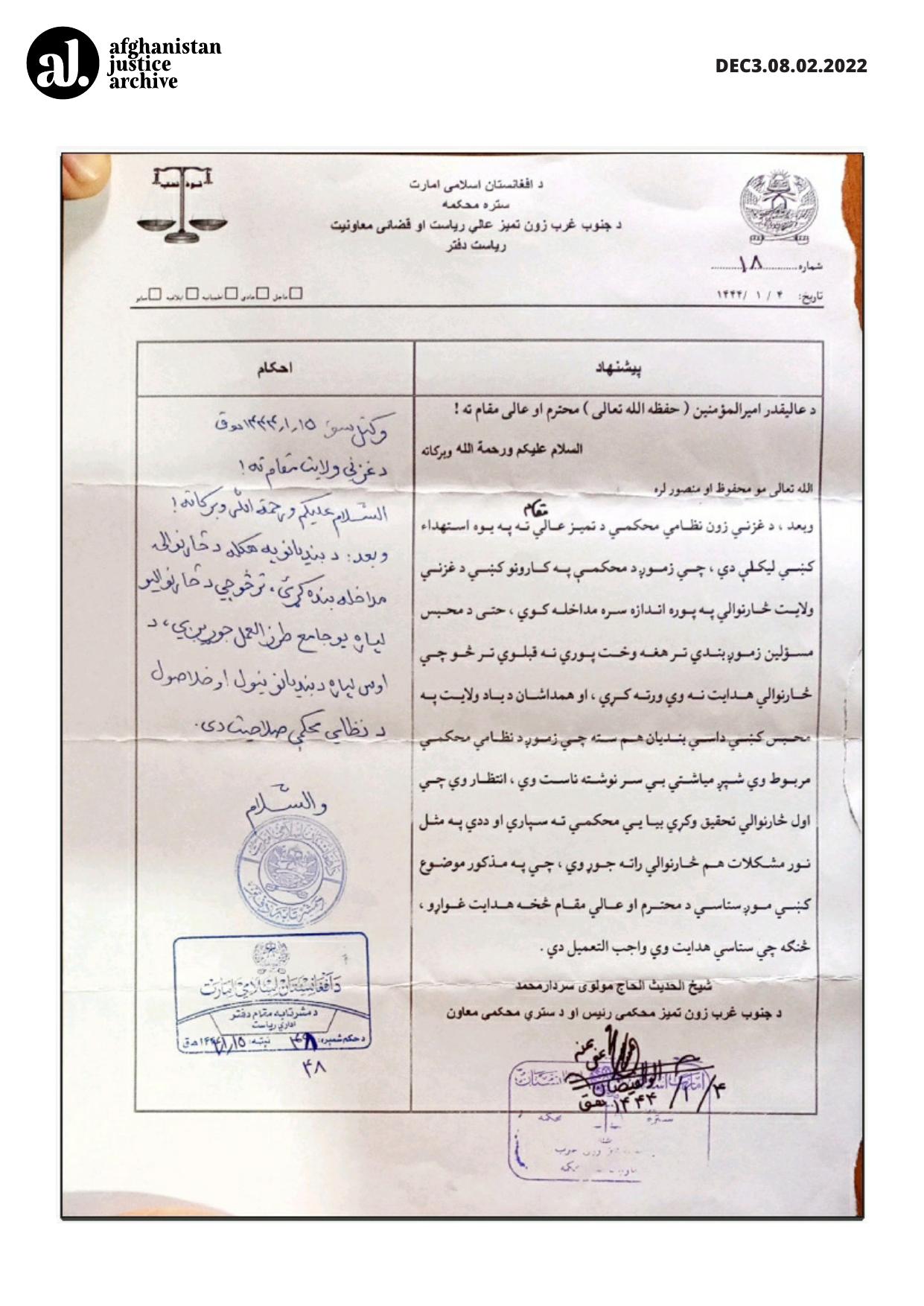Decree
Decree Translation
Official Decree
Date: 1401/05/11
After taking control of Afghanistan, the Taliban stripped the Attorney General's Office of its authority for "investigation and oversight" and temporarily handed it over to the group's intelligence agency.
Based on the order issued by Taliban Leader Mullah Haibatullah, it has been stated: "Instead of the title 'Loy Sarnwal,' the title 'Loy Directorate of Supervision and Pursuance of Decrees and Orders' should be used."
Considering clause 1 of this directive, the provincial appellate prosecution offices will now be referred to as the Directorate of Supervision and Pursuance of Decrees and Orders, and their official correspondences should be adjusted according to the new name of the administration.
The Loy Directorate of Supervision and Pursuance of Decrees and Orders is henceforth "obligated to oversee and pursue the implementation of all orders, decrees, and directives from the leadership in ministries, emirate departments, and the private sector," as stipulated in the aforementioned decree.
The Taliban's judicial system lacks the fundamental processes of investigation and litigation found in standard legal frameworks. After seizing power, the group stripped the Attorney General's Office (formerly known as Loy Sarnwal) of its authority over investigation and oversight, transferring these functions to the Taliban’s intelligence agency. This shift was implemented under the directive of Taliban leader Mullah Haibatullah Akhundzada.
More recently, both written and verbal orders from Akhundzada have formally renamed the Attorney General’s Office as the Loy Directorate of Supervision and Pursuance of Decrees and Orders. This change goes beyond semantics: it redefines the institution’s role from an independent prosecutorial body to an enforcement arm tasked solely with implementing Taliban edicts.
This restructuring represents a serious erosion of Afghanistan’s legal system. By replacing a constitutionally mandated prosecutorial authority with an intelligence-controlled body, the Taliban have eliminated vital checks and balances. The move concentrates power in an opaque, unaccountable entity, undermines the rule of law, and deprives individuals of the right to a fair and impartial trial. It institutionalizes arbitrary governance and impunity under the guise of religious authority.
